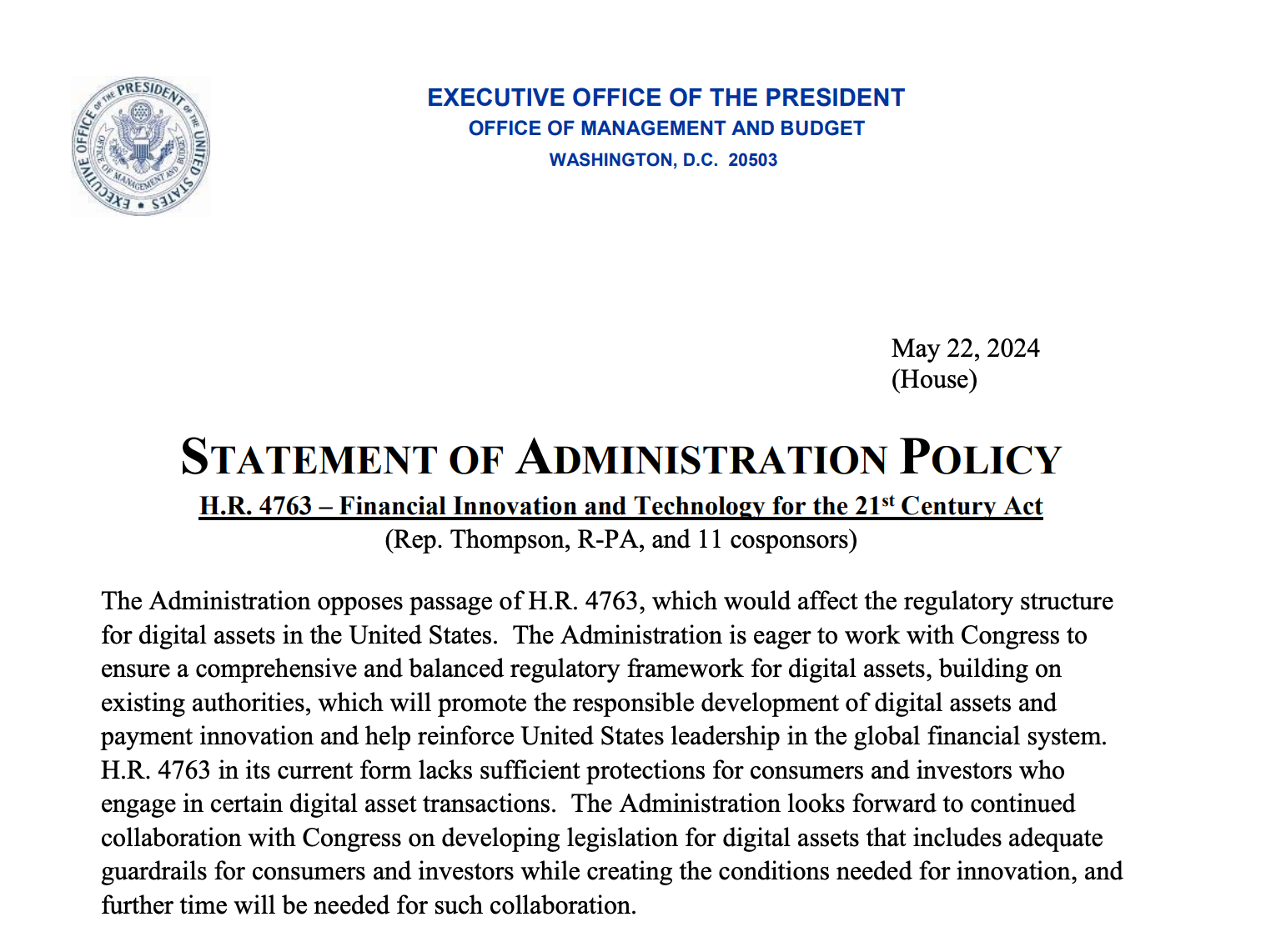As the House of Representatives gears up for a pivotal vote on H.R. 4763, commonly known as the FIT21 bill, prominent figures including U.S. President Joe Biden and SEC Chair Gary Gensler have expressed significant opposition. The bill, which aims to reshape the regulatory landscape for cryptocurrencies, has sparked a heated debate among policymakers and industry leaders.

Biden and Gensler Critique the Proposed Legislation
In the lead-up to the House vote scheduled for May 22, both President Biden and Chair Gensler have articulated their concerns regarding the FIT21 bill. According to a statement issued by the White House, the Biden administration opposes the passage of H.R. 4763 due to what it perceives as inadequate protections for consumers and investors in digital asset transactions. The statement emphasizes the administration's stance that the bill could potentially undermine existing regulatory frameworks and expose the financial system to new vulnerabilities.
Gary Gensler echoed these sentiments in his own statement, arguing that the FIT21 bill would introduce "regulatory gaps" that could jeopardize the stability of U.S. capital markets. He highlighted the risks associated with a lack of comprehensive oversight for digital assets, suggesting that the bill could lead to more uncertainty rather than clarity.
Industry and Legislative Responses
The FIT21 bill is seen by many in the cryptocurrency industry as a necessary step towards providing clear regulatory guidelines. Proponents of the bill argue that the current ambiguity in digital asset regulation has hindered the growth of the sector, driving some companies to relocate outside the United States or face ongoing legal challenges from the SEC.
Despite these industry pressures, the White House has expressed a willingness to collaborate with Congress on crafting an alternative legislative framework that adequately addresses the complexities of cryptocurrency regulation. The administration's call for cooperation suggests a potential openness to reform, albeit on different terms than those proposed by the FIT21 bill.
Potential Presidential Veto Looms
Adding to the legislative drama, President Biden has indicated a readiness to veto the FIT21 bill should it pass both houses of Congress. This stance mirrors his previous threats to veto other legislative efforts that he believes could undermine regulatory standards, including a recent joint resolution aimed at overturning an SEC rule regarding banks' involvement with cryptocurrencies.
As the House vote approaches, the future of the FIT21 bill hangs in the balance, with significant implications for the regulation of digital assets in the United States. Stakeholders from across the political and economic spectrum are closely watching the developments, anticipating a decision that could set the trajectory for the future of financial innovation.










